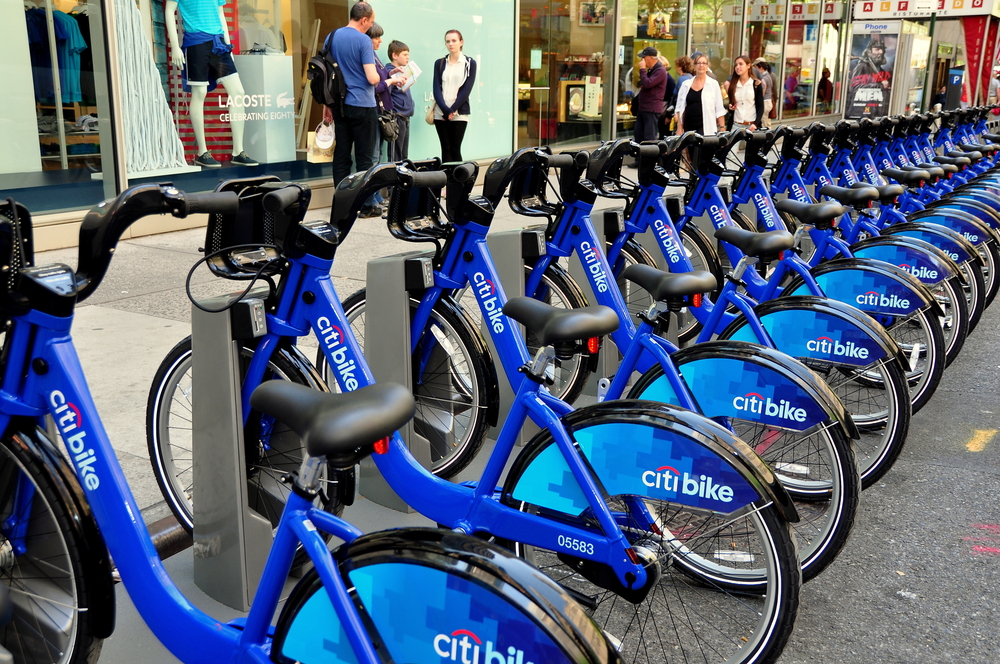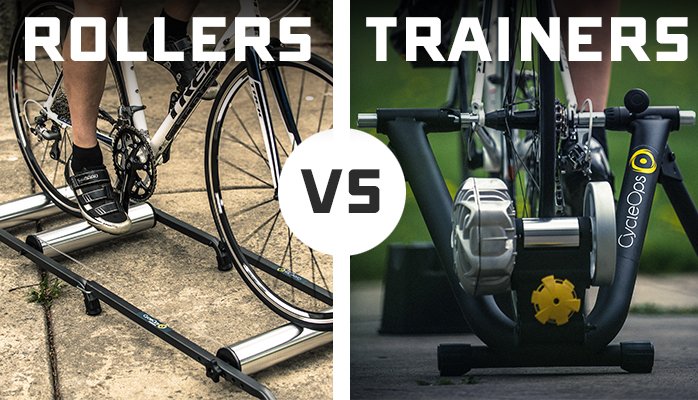Bike sharing in New York City offers a convenient and eco-friendly transportation alternative. It enhances mobility and reduces traffic congestion.
New York City's bike-sharing program, Citi Bike, has revolutionized urban transportation. Launched in 2013, it provides a network of easily accessible bicycles available for short-term use. Users can pick up and drop off bikes at various docking stations across the city, making it ideal for commuting and sightseeing.
The system is designed to be affordable, encouraging more people to opt for cycling over driving. With thousands of bikes and stations, Citi Bike has become a popular choice for residents and tourists alike. It promotes a healthier lifestyle and contributes to the city's sustainability efforts.

Credit: www.msnbc.com
Historical Background
New York City's bike-sharing system has a rich history. It began with small steps and has grown immensely over the years. This section delves into its journey.
Early Beginnings
The concept of bike-sharing in New York City started in the early 2000s. Small pilot programs tested the feasibility of shared bikes. These initial attempts were mostly community-led initiatives. They aimed to provide an eco-friendly transport option.
In 2009, the city government got involved. They launched a study to explore large-scale bike-sharing. This was the first official step towards a city-wide system. The study showed positive results, and plans for expansion began.
Expansion Over Time
In 2013, New York City launched its first official bike-sharing program, Citi Bike. The program started with 6,000 bikes and 330 stations. It was an instant hit among residents and tourists.
Since then, Citi Bike has grown rapidly. By 2020, it had over 15,000 bikes and 1,000 stations. The system now covers most of Manhattan, Brooklyn, Queens, and parts of the Bronx. This expansion made bike-sharing more accessible to a larger population.
Today, New York City's bike-sharing program is one of the largest in the world. It continues to grow, with plans for more bikes and stations. The city's commitment to eco-friendly transportation is evident in this ongoing expansion.

Credit: upgo.lab.mcgill.ca
How It Works
Bike sharing in New York City is a convenient way to travel. It allows you to rent a bike from one location and return it to another. This eco-friendly option is perfect for short trips. Here's how to get started.
Getting Started
First, locate a bike station near you. You can use the bike-sharing app or website. The app will show available bikes and docks in real-time. Once at the station, follow these steps:
- Choose a bike from the dock.
- Use your membership key or the app to unlock the bike.
- Adjust the seat height for comfort.
- Enjoy your ride!
Membership Options
There are different membership options to fit your needs. Here's a table to help you choose:
| Membership Type | Cost | Duration |
|---|---|---|
| Single Ride | $3.50 | 30 minutes |
| Day Pass | $12 | 24 hours |
| Monthly Membership | $25 | 30 days |
| Annual Membership | $169 | 1 year |
Choose the membership that best suits your travel needs. Single rides are great for quick trips. Day passes are ideal for tourists. Monthly and annual memberships are perfect for regular users. Enjoy the freedom and convenience of bike sharing in New York City!
Benefits Of Bike Sharing
Bike sharing in New York City offers many benefits for locals and tourists. It provides a convenient, affordable way to get around the city. Here are some key benefits of bike sharing:
Environmental Impact
Bike sharing helps reduce air pollution. Fewer cars on the road means less harmful emissions. It also helps reduce traffic congestion. This leads to less idling and fewer greenhouse gases. Using bikes instead of cars lowers the city’s carbon footprint.
Bike sharing also promotes sustainable transportation. It reduces the need for parking spaces. This allows for more green spaces in the city. A cleaner, greener city benefits everyone.
Health And Fitness
Bike sharing is great for your health and fitness. Riding a bike is a good way to exercise. It helps burn calories and improves cardiovascular health. Regular biking can lead to better fitness levels.
Biking is also good for mental health. It reduces stress and improves mood. Regular biking can help you feel happier and more relaxed. It’s a fun way to stay fit and healthy.
| Benefit | Details |
|---|---|
| Environmental Impact | Reduces air pollution, traffic congestion, and carbon footprint. |
| Health and Fitness | Improves cardiovascular health, burns calories, reduces stress. |
- Convenient
- Affordable
- Reduces traffic
- Promotes exercise
Challenges And Solutions
Bike sharing in New York City offers convenience and eco-friendly commuting. Yet, there are challenges that need addressing. Effective solutions are essential to improve the system.
Infrastructure Issues
New York City's streets are often crowded. Limited bike lanes make navigation tough. Bike stations sometimes lack enough space. This causes congestion.
To solve this, more bike lanes are needed. Expanding bike stations is crucial. Advanced technology can help manage bike availability. A well-organized system ensures smooth operations.
Safety Concerns
Safety is a major worry for riders. Accidents can happen due to traffic. Poor lighting at night increases risk.
Wearing helmets is vital for safety. Reflective gear helps riders stay visible. Educating riders about traffic rules is key. Enforcement of bike laws ensures adherence.
| Challenge | Solution |
|---|---|
| Limited bike lanes | Build more bike lanes |
| Congested stations | Expand bike stations |
| Accidents | Promote helmet use |
| Poor lighting | Install better lights |
Improving infrastructure and safety measures can enhance the bike-sharing experience. This makes biking in New York City more enjoyable and secure.
Technological Innovations
Bike sharing in New York City has transformed with new technological innovations. These advancements have made it easier and more enjoyable to use bike-sharing services. Two key innovations are mobile apps and smart bikes.
Mobile Apps
Mobile apps are essential for bike-sharing in New York City. These apps provide real-time information about bike availability and docking stations. Users can quickly locate the nearest bike station with a few taps.
The apps also offer a seamless rental process. Riders can unlock bikes using QR codes or Bluetooth. Payments are secure and straightforward, allowing users to ride without hassle.
| Feature | Description |
|---|---|
| Real-time Information | Shows bike and dock availability |
| Easy Rentals | Unlock bikes with QR codes or Bluetooth |
| Secure Payments | Safe and simple payment options |
Smart Bikes
Smart bikes are another innovation in New York City's bike-sharing system. These bikes come equipped with advanced technology. They have GPS tracking, making it easy to locate and secure them.
Smart bikes also feature automatic gear shifting. This makes riding smoother and more enjoyable. The built-in sensors monitor the bike's condition and notify the service team when maintenance is needed.
- GPS Tracking: Locate bikes easily and ensure security.
- Automatic Gear Shifting: Enjoy a smooth ride every time.
- Condition Monitoring: Sensors notify for maintenance needs.
Community Impact
Bike sharing in New York City has a broad community impact. This sustainable mode of transport benefits everyone. Here, we explore how it boosts the local economy and promotes social equity.
Local Economy
Bike sharing supports the local economy in many ways.
- It creates new jobs for bike maintenance and customer support.
- Local shops see more foot traffic from cyclists.
- Bike stations often attract new businesses to the area.
A table below shows economic benefits:
| Economic Benefit | Impact |
|---|---|
| New Jobs | 100+ jobs created |
| Local Shops | 20% increase in sales |
| New Businesses | 15 new startups |
Social Equity
Bike sharing promotes social equity by making transport accessible.
- Bikes are available in low-income neighborhoods.
- Affordable pricing plans help everyone use the service.
- Special programs support people with disabilities.
These measures ensure everyone can benefit from bike sharing. They make the city more inclusive and fair.
Future Prospects
Bike sharing in New York City has seen incredible growth. With the system's success, the future prospects look bright. Let's explore what's ahead for bike sharing in NYC.
Upcoming Projects
Several exciting projects are in the pipeline. These projects aim to expand the bike-sharing network.
- New Stations: Plans to add 100 new stations across the city.
- Electric Bikes: Introduction of more electric bikes for longer rides.
- App Upgrades: Improved app features for better user experience.
Long-term Vision
The long-term vision for bike sharing in NYC is ambitious. It aims to make the city more bike-friendly.
- City-Wide Coverage: Ensure every neighborhood has easy access to bikes.
- Environmental Goals: Reduce traffic congestion and lower carbon emissions.
- Safety Measures: Implement new safety features and bike lanes.
| Project | Details |
|---|---|
| New Stations | 100 new stations to be added city-wide |
| Electric Bikes | More electric bikes for longer and easier rides |
| App Upgrades | Better user experience with new app features |
| City-Wide Coverage | Bikes available in every neighborhood |
| Environmental Goals | Lower traffic and carbon emissions |
| Safety Measures | New safety features and bike lanes |

Credit: checksandbalancesproject.org
Frequently Asked Questions
What Is Bike Sharing In Nyc?
Bike sharing in NYC is a public bicycle system. Users can rent bikes for short trips. It's convenient for commuting and sightseeing.
How Do I Rent A Bike In Nyc?
To rent a bike, use the Citi Bike app. Find a nearby station, unlock a bike, and start riding.
Are There Bike Lanes In New York City?
Yes, NYC has extensive bike lanes. These lanes make cycling safer and more accessible for everyone.
How Much Does Bike Sharing Cost In Nyc?
Bike sharing costs vary. A single ride starts at $3. 50. Monthly and annual memberships offer savings.
Conclusion
Bike sharing in New York City offers a convenient and eco-friendly transportation option. It's perfect for short commutes and exploring the city. With numerous stations, it's easy to rent and return bikes. Embrace this sustainable mode of transport and enjoy a healthier, greener lifestyle in the bustling metropolis.














